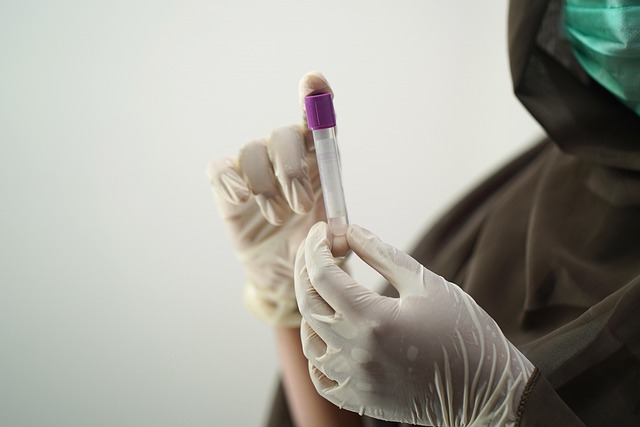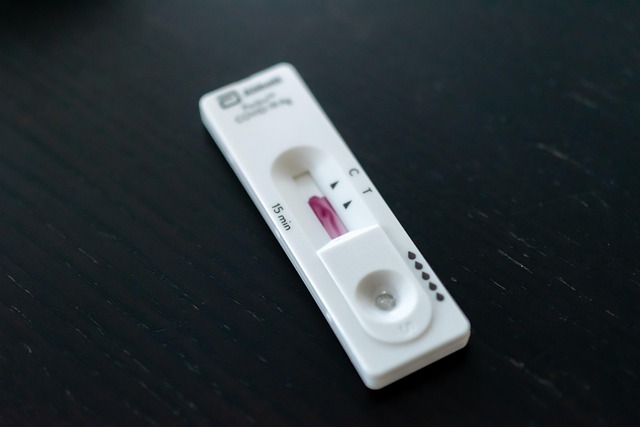Men in the UK are increasingly aware of male hormone health, utilizing the Male Hormone Blood Test UK to assess testosterone levels for symptoms related to energy, muscle mass, sexual function, and mood. Results, measured in nanomoles per litre (nmol/L), with normal ranges around 10-30 nmol/L, guide diagnosis of conditions like hypogonadism or other medical issues. Consulting a healthcare professional is crucial for accurate interpretation based on age, lifestyle, health history, and current well-being.
In the UK, raising awareness about male health is crucial. One essential tool in maintaining well-being is understanding and monitoring testosterone levels through a male hormone blood test. This article delves into the significance of testosterone as the primary male sex hormone, its role in various bodily functions, and when men might consider getting tested. We’ll guide you through the process, explaining results and health implications to empower men in managing their overall fitness.
- Understanding Testosterone and Its Role in Male Health
- When and Why Men Might Need Testosterone Testing
- Interpreting Results: What Do Levels Mean for Your Health?
Understanding Testosterone and Its Role in Male Health

Testosterone is a male hormone, primarily produced by the testes, playing a crucial role in various aspects of male health and well-being. It is often referred to as the ‘master hormone’ due to its influence on multiple systems within the body. Beyond sexual development, testosterone is vital for maintaining muscle mass, bone density, energy levels, and overall libido. Regular exercise and healthy dietary patterns can support optimal testosterone levels, but certain conditions, such as hypogonadism, can lead to low testosterone, impacting a man’s physical and mental health.
In the UK, men experiencing symptoms like reduced muscle mass, fatigue, or decreased sexual function may opt for a Male Hormone Blood Test to assess their testosterone levels. This test involves taking a blood sample, which is then analysed to determine if testosterone levels fall below the normal range, potentially indicating underlying health issues that require medical intervention. Understanding and monitoring testosterone levels can empower men to take charge of their health and seek appropriate support when needed.
When and Why Men Might Need Testosterone Testing

Men may consider undergoing testosterone testing for various reasons, often driven by concerns about their overall health and well-being. This is particularly relevant in the UK where awareness about male hormone health is growing. Testosterone, being the primary sex hormone in men, plays a pivotal role in several bodily functions.
A Male Hormone Blood Test UK can be beneficial when individuals experience symptoms like decreased energy levels, reduced muscle mass, erectile dysfunction, or changes in mood and sexual drive. These indicators could suggest underlying hormonal imbalances that require medical attention. Such tests are valuable tools for healthcare professionals to diagnose and treat conditions associated with low testosterone levels, ensuring men receive appropriate care tailored to their specific needs.
Interpreting Results: What Do Levels Mean for Your Health?

Interpreting your testosterone levels is key to understanding your health. In the context of a male hormone blood test UK, results are typically measured in nanomoles per litre (nmol/L). The normal range for total testosterone varies slightly between labs and can generally be considered 10-30 nmol/L for adult men. Levels below 300 nmol/L may indicate hypogonadism or low testosterone, which can lead to fatigue, decreased muscle mass, and reduced libido. Conversely, elevated levels could suggest potential issues like tumours or other medical conditions that require further investigation.
Understanding your results involves not only looking at the number but also considering factors such as age, lifestyle, and overall health. For example, testosterone levels naturally decline with age, so a slightly lower result in an older man might be within the normal range. Conversely, intense exercise can temporarily decrease testosterone, while stress or poor diet can affect its production. It’s important to discuss your results with a healthcare professional who can interpret them in light of your medical history and current state of health.
Testosterone level testing is a valuable tool for men seeking to understand their overall health, especially in the UK where access to male hormone blood tests has become more accessible. By interpreting results, individuals can make informed decisions about their well-being, addressing potential health issues early on. Regular monitoring can empower men to maintain optimal testosterone levels, thereby fostering a healthier and more balanced lifestyle.
